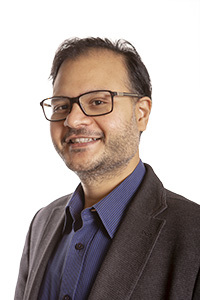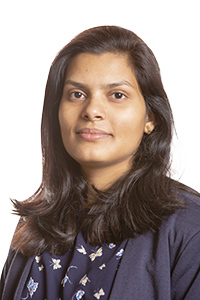RESORTEX
Start date: 2023-12-01
End date: 2026-11-30
From a Swedish perspective, charities are often setting the tone for the collection and handling of used textiles, but there are also plenty of commercial players participating in these flows. Together they form a complex national as well as international network of actors that is becoming increasingly important as new regulations at the EU level are being designed and the demand for sustainable materials and products is increasing among consumers. New technologies such as automatic sorting of textile materials and chemical recycling processes have created new conditions for textile recycling in Europe. To be able to manage future increases in volume and make the system even more efficient, however, it needs to be extended to also include other parts of the world, for example India. India is today one of the world's largest importers of use textiles and have extensive investment projects and multinational collaborations linked to textile recycling. From a Swedish perspective, India thus becomes an increasingly important cooperation partner in terms of textiles recycling.
To be able to overcome the challenges that exist today at product, process and supply chain level in textiles the recycling system requires advanced decision-making that takes into account the system as a whole. One basic idea in this project is that a data-driven decision support could support the system's different stakeholders (e.g. sorting companies, recyclers, circular material suppliers, manufacturers and retail brands) when designing textile recycling value chains. RESORTEX therefore aims to further develop and implement a decision support system that can help companies design more efficient and effective value chains for textile fiber-to-fiber recycling of used clothing.
Expected results and effects
The system to be developed within the framework of the project must support in an interactive and dynamic way the design of efficient and optimized chains for recycling, where the supply of raw materials in the best way matched with current market needs. A challenge that exists today is that textile waste is not handled and sold in a standardized range of material categories This makes effective long-term development and planning difficult of the chains. RESORTEX will therefore also investigate how a more standardized range of material categories can be created, and what positive effects this can have. On a more comprehensive level the decision support is expected to contribute to a greater understanding of the potential of different business models and value creation in textile recycling chains. RESORTEX will also characterize the feedstock to aid standardizing textile waste categories, and define relevant taxonomies. Practitioner-oriented learnings will be generated to guide stakeholders orient their business models.
Planned approach and implementation
The project is divided into four work packages;
- Mapping of current flows and opportunities for a better one future design and value creation in the global textile recycling system,
- Production of relevant criteria for a data-driven decision support as well as its design and modelling,
- Investigation of how different material categories can be standardized, as well as how this can lead to more efficient recycling processes, and
- Use and scale-up of different business models in connection with implementation of the results from work packages two and three.
RESORTEX is a multi- and interdisciplinary project based in the three areas of circular value chains, decision support, as well as textile recycling. It consists of an Indian-Swedish consortium with four universities, one research institute, as well as two smaller SME companies that work with textile recycling and IT respectively. Beyond this, the project also involves two major multinational companies in the textile industry (one Swedish and one Indian) as "speaking partners". The project mainly contributes to the global goals 8, 9, 12 and 17, and its results will be disseminated through a large number of different activities, including the writing of scientific articles, presentations for researchers as well as practitioners, through social media, conferences, etc.
Project Leader
Rudrajeet Pal
Docent
Professor
033-435 4530




